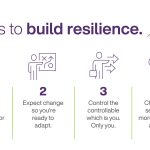
Postpartum depression is a mental health disorder that affects new mothers after childbirth. It is characterized by feelings of sadness, anxiety, and exhaustion that can make it difficult for women to care for themselves and their babies. In this article, we will explore ways to provide support and promote recovery for women experiencing postpartum depression.
Understanding Postpartum Depression
Postpartum depression is a common condition that affects approximately 10-20% of new mothers. It can occur anytime within the first year after giving birth, and its causes are believed to be a combination of hormonal, environmental, and psychological factors. Symptoms may include persistent feelings of sadness, irritability, loss of interest in activities, changes in appetite and sleep patterns, and thoughts of self-harm or harming the baby.
Seeking Professional Help
If you suspect that you or someone you know is experiencing postpartum depression, it is crucial to seek professional help. Mental health professionals specializing in postpartum depression can provide proper diagnosis and recommend appropriate treatment options such as therapy or medication. Remember, reaching out for help is a sign of strength and prioritizing your well-being as a new mother.
Building a Support System
Having a strong support system is essential for women going through postpartum depression. Friends, family, and partners can offer emotional support, help with childcare, and provide a listening ear. It is crucial to communicate openly with your loved ones about your feelings and needs, as they may not fully understand what you are going through without proper communication.
Join a Support Group
In addition to personal support, joining a postpartum depression support group can be highly beneficial. These groups offer a safe space to share experiences, receive encouragement, and gather useful coping strategies from other mothers who have gone through similar challenges. Support groups can be found in local communities or online, allowing flexibility in participation.
Educate Loved Ones
Educating your loved ones about postpartum depression can help them better understand your condition. Provide them with informational resources and invite them to learning sessions or counseling sessions with a mental health professional. The more knowledge and understanding they have, the better equipped they will be to support you on your recovery journey.
Self-Care Measures
Self-care is crucial in managing postpartum depression. Taking care of your physical and mental well-being can significantly contribute to your recovery. Here are some self-care measures that can help:
Rest and Sleep
Ensure you are getting enough rest and sleep. Rest when your baby rests, and try to establish a consistent sleep routine for both you and your baby.
Healthy Diet
Eating a balanced diet can improve your mood and energy levels. Focus on consuming nutrient-rich foods such as fruits, vegetables, whole grains, and lean proteins.
Exercise
Engaging in regular physical activity, even if it’s just a short walk, can boost your mood and reduce symptoms of depression. Consult your doctor before starting any exercise routine.
Relaxation Techniques
Practice relaxation techniques such as deep breathing, meditation, or yoga to manage stress and anxiety. These techniques can help calm your mind and promote a sense of inner peace.
Conclusion
Postpartum depression is a challenging condition that requires support and understanding from both healthcare professionals and loved ones. By seeking professional help, building a support system, and implementing self-care measures, women can navigate through postpartum depression and emerge stronger on their path to recovery. Remember, you are not alone, and there is hope for a brighter and more fulfilling postpartum period.





